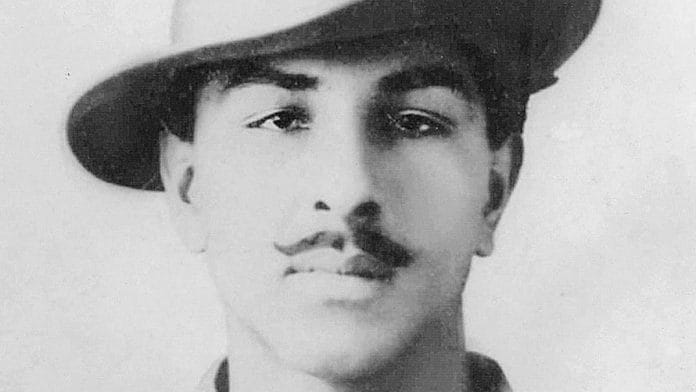New Delhi: Freedom fighter Bhagat Singh’s nationalism, if transported into the present day, would sit uneasily with the loud, faith-aligned patriotism that dominates political discourse, eminent historian Syed Irfan Habib told an audience this week. Speaking at the fourth edition of the public lecture series at HKS Surjeet Bhawan in Delhi, Habib reflected on a question: “Was Bhagat Singh only a nationalist?”
The lecture was a revisit of Bhagat Singh’s writings and political evolution at a time when the freedom fighter is frequently invoked in public life but rarely read. Habib argued that Singh’s nationalism was anchored in justice, rational thinking, and an unflinching critique of social hierarchies, a worldview that complicates – and often contradicts, the contemporary narrative in which he is celebrated.
“His idea of nationalism evades the current nationalist rhetoric by a long stretch,” Habib remarked.
Habib, 94, stressed that Bhagat Singh viewed freedom not merely as the end of colonial rule but as a deeper social transformation. “His was a fight not just against the British, but against injustice,” he said.
Singh wrote extensively about caste, communalism, patriarchy, and economic inequality – ills he believed would continue to enslave Indians even after Independence if left unchallenged.
Singh’s own evasion shaped this perspective. “He was never seen without a book,” Habib recalled, noting that one of Singh’s final wishes before execution was to finish reading Lenin’s work.
Uncomfortable questions and today’s nationalism
Bhagat Singh’s nationalism, Habib said, was rooted in a habit of interrogation, including revered icons. He questioned untouchability, gender discrimination, and religious orthodoxy at a time when many freedom fighters avoided such confrontations.
One anecdote the professor highlighted was Singh calling out Madan Mohan Malviya for bathing after being touched by a Dalit man during a public procession. Singh respected Malviya’s reformist work but criticised the disconnect between his advocacy and personal practice.
Singh also rejected the culture of hero worship around Mahatma Gandhi. Habib clarified that Singh never belittled Gandhi; instead, he questioned followers who venerated Gandhi without understanding his ideas.
Habib drew a sharp contrast between Singh’s rationalist, egalitarian nationalism and the slogan-driven rhetoric that defines public debate now. “I fear we’re not even steering in the direction Bhagat Singh aimed for,” he said. According to Singh, Habib said, nationalism was incompatible with religious slogans – a position that directly challenges present-day practices.
Also Read: Shaheed Bhagat Singh, the freedom fighter everyone loves
A question on terrorism
When an attendee asked whether “today’s terrorists are freedom fighters of tomorrow,” citing how the British labelled Bhagat Singh a terrorist, the hall fell silent. Habib differentiated Singh’s targeted political violence from indiscriminate attacks on civilians.
The professor argued that Singh’s actions aimed to “make the deaf British hear,” while modern terrorism involves mass slaughter. The real terrorists, he said, are those who bomb Gaza “mercilessly”.
Writer and activist Sohail Hashmi pointed to a tension between the nationalism celebrated today and the one practised by Bhagat Singh. “Today’s nationalism seemingly requires alignment to a certain faith; however, Bhagat Singh was an atheist,” he said. “Would the present-day nationalism allow him to emerge as a nationalist, without embracing a certain faith?”
Professor Habib never said it outright, but through the ideas he surfaced, the message was clear. The audience was left with an implicit answer to the lecture’s guiding question.
Ankita Thakur is an alumna of ThePrint School of Journalism. She interned with ThePrint.
(Edited by Stela Dey)






